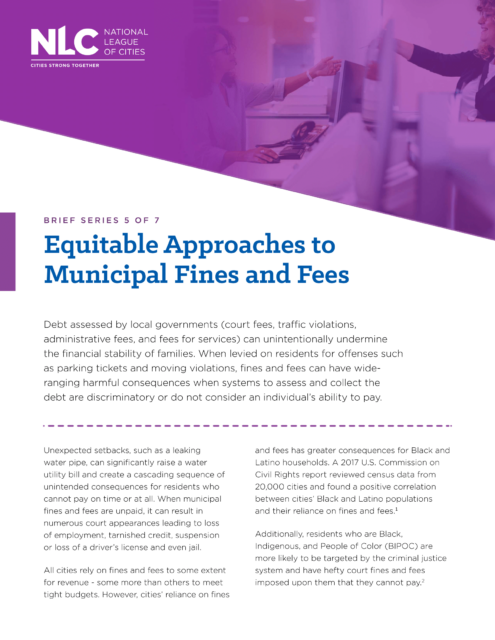Debt assessed by local governments (court fees, traffic violations, administrative fees, and fees for services) can unintentionally undermine the financial stability of families. When levied on residents for offenses such as parking tickets and moving violations, fines and fees can have wide-ranging harmful consequences when systems to assess and collect the debt are discriminatory or do not consider an individual’s ability to pay. All cities rely on fines and fees to some extent for revenue – some more than others to meet tight budgets. However, cities’ reliance on fines and fees has greater consequences for Black and Latino households. A 2017 U.S. Commission on Civil Rights report reviewed census data from 20,000 cities and found a positive correlation between cities’ Black and Latino populations and their reliance on fines and fees. This brief details steps toward an equitable approach and what some cities are doing to address this challenge.
Brief topics include:
- Mitigating the harmful impacts of fines and fees
- Incorporating financial empowerment services into collection strategies
- Engaging state and county government
Learn more about taking action to expand economic mobility for your residents and visit Equitable Economic Mobility Initiative.








